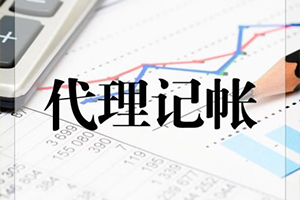HAIKOU — More Chinese enterprises are embracing the concept of environmental, social, and governance as they continue to improve their sustainable development capabilities and respond to the country’s goal of reducing carbon emissions.
 First coined in 2005, ESG provides a view of a company and its long-term value potential and relevance to its stakeholders. An ESG rating measures environmental and social impact and the effectiveness of corporate governance in managing them. Organizations create ESG strategies to help them act on and measure what is mutually good for profits, people, and the planet.
First coined in 2005, ESG provides a view of a company and its long-term value potential and relevance to its stakeholders. An ESG rating measures environmental and social impact and the effectiveness of corporate governance in managing them. Organizations create ESG strategies to help them act on and measure what is mutually good for profits, people, and the planet.
At the recent 2022 Boao Forum for Entrepreneurs held in South China’s Hainan province, Chinese entrepreneurs and experts shared their experience in implementing ESG strategy.
Wang Xiaogang, CEO of THNORLAND, a dairy company based in Northwest China’s Qinghai province, said the company has been practicing an ESG development philosophy since its inception.
“We conduct carbon monitoring throughout the industrial chain and have built a data-based system, and strive to build ecological organic farming and animal husbandry,” said Wang, emphasizing the importance of green development to environmental protection of the Qinghai-Tibet Plateau.
Zhou You, vice-president of auto information provider Autohome Inc, said the firm is now adapting to ESG regulatory standards and will publish its first ESG rating assessment next year.
“The automobile industry has a large carbon emission, and many automobile enterprises seek technological innovation and product transformation in pursuit of the goal of reducing carbon emission,” said Zhou, promising that the company will make contributions to the green transformation of the auto industry.
King’s Luck is a liquor company based in East China’s Jiangsu province. Besides making wine, it has established a grain planting base so as to help rural revitalization.
In this way, the company realizes the integration of creating economic value and social value. In the first three quarters of 2022, the firm’s revenue reached 6.51 billion yuan ($904.1 million), a year-on-year increase of nearly 22.2 percent.
Standards must be formulated to better regulate the operation of enterprises. Thus, a set of organizational standards for an enterprise ESG evaluation system was published in Beijing this year, serving as an essential infrastructure for the ESG practice of enterprises.
Led by China Economic Information Service, the Capital University of Economics and Business, and the China Enterprise Reform and Development Society, the formulation of the standards is jointly accomplished by over 90 enterprises, institutions, and organizations.
According to the data released on the forum, more than 1,400 listed companies in China disclosed independent social responsibility reports or ESG reports in 2021.








